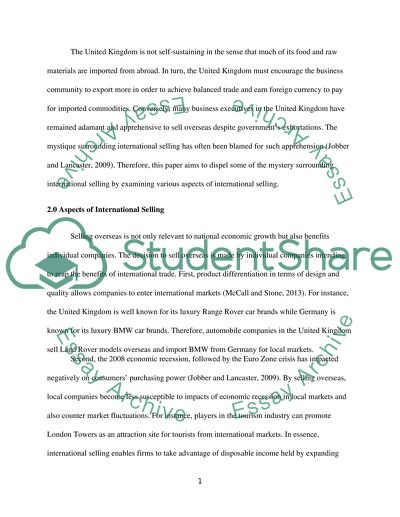Cite this document
(“Operational Sales Management - The nature of the sales environment Essay”, n.d.)
Operational Sales Management - The nature of the sales environment Essay. Retrieved from https://studentshare.org/marketing/1496682-operational-sales-management-the-nature-of-the
Operational Sales Management - The nature of the sales environment Essay. Retrieved from https://studentshare.org/marketing/1496682-operational-sales-management-the-nature-of-the
(Operational Sales Management - The Nature of the Sales Environment Essay)
Operational Sales Management - The Nature of the Sales Environment Essay. https://studentshare.org/marketing/1496682-operational-sales-management-the-nature-of-the.
Operational Sales Management - The Nature of the Sales Environment Essay. https://studentshare.org/marketing/1496682-operational-sales-management-the-nature-of-the.
“Operational Sales Management - The Nature of the Sales Environment Essay”, n.d. https://studentshare.org/marketing/1496682-operational-sales-management-the-nature-of-the.


